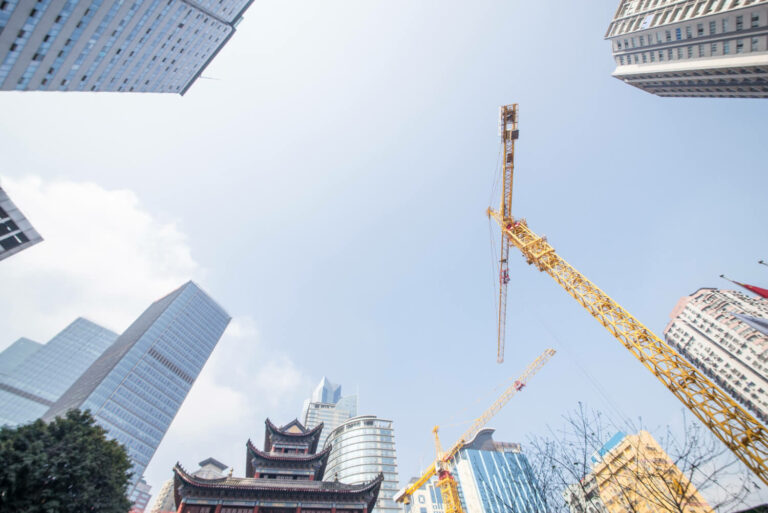Toronto’s real estate development industry is dynamic and ever-changing. With a rich history and a promising future, the city continues to grow and evolve. This article explores the history, current trends, and future prospects of real estate development in Toronto.
Historical Background
Toronto’s real estate development has a long history. In the early 19th century, the city began expanding rapidly. This growth was driven by immigration and the development of transportation infrastructure.
Early developments focused on residential areas and basic infrastructure. Neighborhoods like Cabbagetown and Yorkville began to take shape during this period. These areas were initially home to workers and middle-class families.
In the late 19th and early 20th centuries, Toronto saw a boom in real estate. The construction of railways and streetcars spurred suburban growth. This period also saw the rise of iconic buildings and the expansion of the downtown core.
The mid-20th century brought significant changes. Post-war housing demands led to suburban expansion. Highways and residential subdivisions expanded the city’s footprint. This era also saw the development of major shopping centers and office buildings.
Modern Developments
Today, Toronto’s real estate market is thriving. The city is known for its diverse and vibrant neighborhoods. High-rise condos and mixed-use developments dominate the skyline.
The construction of new residential towers is a significant trend. These buildings provide housing for the city’s growing population. Many offer modern amenities, such as gyms, pools, and communal spaces.
There is also a strong demand for rental properties. Developers are building new apartment complexes to meet this need. These buildings often feature eco-friendly designs and smart technologies.
Mixed-use developments are increasingly popular. These projects combine residential, commercial, and recreational spaces. They create vibrant communities where people can live, work, and play.
Key Trends
Several key trends are shaping Toronto’s real estate market. One major trend is the focus on sustainability. Developers are incorporating green building practices into their projects. This includes energy-efficient systems, green roofs, and sustainable materials.
Another trend is the rise of smart buildings. These buildings use advanced technologies to improve efficiency and comfort. Features like smart thermostats, automated lighting, and high-speed internet are becoming standard.
The demand for affordable housing is also driving development. The city is encouraging the construction of affordable units in new projects. This aims to provide more housing options for low- and middle-income residents.
Challenges Faced
The real estate development industry in Toronto faces several challenges. High land and construction costs are significant barriers. These costs can make it difficult for developers to create affordable housing.
Regulatory hurdles are another issue. Obtaining permits and meeting compliance requirements can be time-consuming. Developers are advocating for streamlined processes to speed up project approvals.
There is also a need for more skilled labor. The construction industry is experiencing labor shortages, impacting project timelines. Training programs and incentives are being developed to attract more workers to the industry.
The Role of Technology
Technology is playing a crucial role in Toronto’s real estate development. Virtual reality (VR) and augmented reality (AR) are being used in project planning and marketing. These technologies allow potential buyers to visualize properties before they are built.
Building Information Modeling (BIM) is another important tool. BIM helps developers create detailed digital models of buildings. This improves project planning and coordination, reducing errors and costs.
PropTech, or property technology, is also on the rise. This includes platforms and apps that streamline property management and sales. PropTech solutions are making the real estate process more efficient and user-friendly.
Future Prospects
The future of Toronto’s real estate development industry looks bright. The city continues to grow, driving demand for new housing and commercial spaces. Several large-scale projects are planned or underway.
The construction of new residential towers will continue. These projects aim to provide diverse housing options, from luxury condos to affordable apartments. Developers are also focusing on creating more family-friendly units.
Mixed-use developments will remain a key trend. These projects create vibrant, self-sustaining communities. They offer a balanced mix of housing, shopping, and entertainment options.
Sustainability will continue to be a priority. Future developments will likely include more green spaces and eco-friendly features. This aligns with the city’s goals for reducing its environmental footprint.
Conclusion
Toronto’s real estate development industry has a rich history and a promising future. From early residential neighborhoods to modern high-rises, it has played a crucial role in the city’s growth. Despite challenges, the industry continues to thrive, driven by innovation and a commitment to sustainability.
The city’s ongoing growth presents numerous opportunities for developers. As Toronto expands, the real estate industry will remain a key player in shaping its future. With new projects and emerging trends, the industry is set to continue its significant contribution to the city’s landscape and economy.

